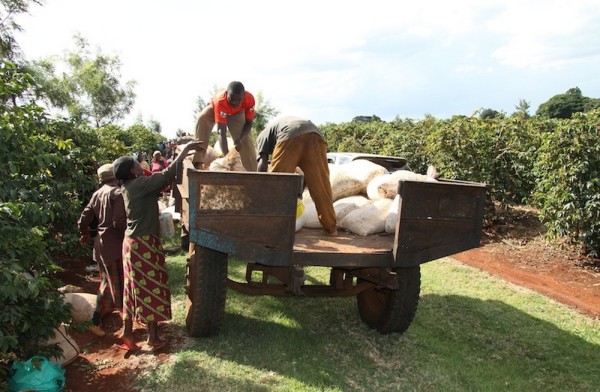by Michael Sheridan of CRS Coffeelands Blog
When I was an undergraduate, I watched more C-Span than I cared to admit. The parliamentary protocols of the U.S. House of Representatives became almost as familiar to me as the rites of the Catholic Mass, and the language members used as they rose to deliver comments on the floor etched itself in my memory: “I ask unanimous consent to revise and extend my remarks.”
That is, to change the words they speak on the House floor before they are printed in the Congressional Record, where they are preserved for eternity.
I was reminded of the importance of the official record again in graduate school, when I wrote a paper on the decision of the International Criminal Tribunal for Rwanda to convict radio announcers who incited Hutus to genocide in 1994. In its decision, the ICTR invoked language lifted from the official record of committee meetings held in 1948 to prepare the text of the Genocide Convention — language that participants decided not to include in the text of the final document. It wasn’t so much that the language was wrong. It was simply ahead of its time. More than 50 years later, the ICTR revived it to help convict leaders of Rwanda’s “hate media” of genocide.
Getting on the record, it turns out, can be important. Even if it may not seem to be at the time.
My sense is that farmworkers are getting on the record in specialty coffee these days in ways they haven’t in recent years. In ways that could be important. Here are just a few recent examples of farmworkers finding their way into the official record of the sustainability conversation in coffee:
- In April, SCAA Executive Director Ric Rhinehart included pointed reference to farmworkers in his 2014 Symposium keynote.
- Four days later at the 2014 SCAA Expo, I had the privilege of moderating a panel discussion on farmworker issues.
- In May, a settlement was reached in a human-trafficking case involving Thai farmworkers on coffee farms in Hawaii.
- Farmworkers are at the center of a report on the impacts of Fair Trade Certification released in May by researchers from the Fairtrade, Employment and Poverty Reduction program at the School of Oriental and African Studies in London.
- Fair Trade USA is rewriting the rules for certification in coffee in part to pursue an agenda of farmworker organization and empowerment.
- Analysts at FEWS NET have focused on coffee farmworkers in their coverage of the social and economic fallout of the coffee leaf rust epidemic in Central America.
Let us hope we don’t have to wait 50 years to see people in positions of power invoke some of these references in taking action to improve wages and working conditions for farmworkers in the coffeelands.
Michael Sheridan
Michael Sheridan is the Chief Executive Officer of the Coffee Quality Institute, a nonprofit organization with a mission to improve coffee quality and the lives of those who produce it. Sheridan has been leveraging market forces to make coffee work for smallholder farmers and farm workers since 2004. Most recently he directed progressive green coffee sourcing activities and direct-trade partnerships at Intelligentsia Coffee. Prior to that he worked to deliver initiatives in the coffee sector in Central and South America on behalf of Catholic Relief Services.







Comment